Intervista esclusiva a Carola Stoiber, figura cardine del cosidetto Sound of Berlin. Pioniera “dietro le quinte” della musica techno di Berlino.
Di solito è così, soprattutto in questo ambiente: ci sono i riflettori che illuminano la scena e c’è chi lavora nell’ombra. Ma tra tutta questa gente c’è, poi, chi possiede anche un’altra dote, la lungimiranza, e sono quelle persone, rare, che riescono a guardare oltre il muro, e Carola Stoiber, nata nella Germania degli anni ’60, rientra a pieno titolo in questa categoria.
“Nell’aria c’era l’alba di una nuova era, soprattutto a Berlino con lo status speciale della città e senza più il muro. […] Tutti insieme abbiamo sperimentato una nuova libertà e il nuovo suono Techno ne è stata la colonna sonora.”
vedi anche: “The Sound of Berlin: un documentario nella capitale della Techno”
Certo, una giovane Carola, arrivata a Berlino Ovest, nel lontano 1984, da un freddo paesino del nord di 200 anime, voleva fare tutt’altro nella vita e la dance music proprio non le piaceva. Voleva diventare una giornalista, andava all’università e ascoltava i Talking Heads, Nina Hagen e i Cure. Ma fu proprio lì, durante lo svolgimento di uno di quei corsi che, quasi per caso, entrò in contatto con Dietmar-Maria “Dimitri” Hegemann; da quel momento la vita di Carola diventò “Techno Total”.

Dimitri, Carola, Jeff:
Foto di Gustav Volker Horst
L’incontro tra Carola Stoiber e Dimitri Hegemann
Dimitri (un’altra leggenda vivente) era già stato l’organizzatore dei primissimi Berlin Atonal e aveva da poco dato vita all’Interfisch Records, che sfociò nell’UFO club (primo club acid house della capitale tedesca), il quale divenne poi il ben più noto Tresor, da cui nacque la Tresor Records. Stiamo parlando di Istituzioni fondamentali della musica Techno berlinese e, di riflesso, mondiale.
E Carola Stoiber, siamo nell’ ’88, iniziò subito a collaborare gomito a gomito con queste realtà, dapprima svolgendo compiti di segreteria per l’Interfisch, per poi diventare la responsabile della pubblicazione dei dischi, nonché direttore generale della Tresor dal 1994 al 2010.

Lei sa bene cosa vuol dire guardare oltre quel maledetto muro – e dovremmo ringraziarla tutti – perché è anche grazie al suo gusto musicale se si è venuta a formare l‘estetica sonora della techno di Berlino di ieri, profondamente connessa con quella di Detroit anche da rapporti personali (come ci spiegherà nell’intervista che ci ha gentilmente rilasciato), che influenza ancora, e non poco, quella odierna.
“Resisto al metodo dei grandi canali: se ti piace questo, probabilmente ti piace anche quest’altro. Nessuno mi dice qual è il mio gusto musicale.”
Ma che fa ora? Ora continua a fare quello ha sempre fatto, spingere la musica elettronica che le piace in giro per il mondo. Infatti dopo aver contribuito alla crescita della club culture oggi gestisce una delle più note e grandi agenzie di booking: la PullProxy.
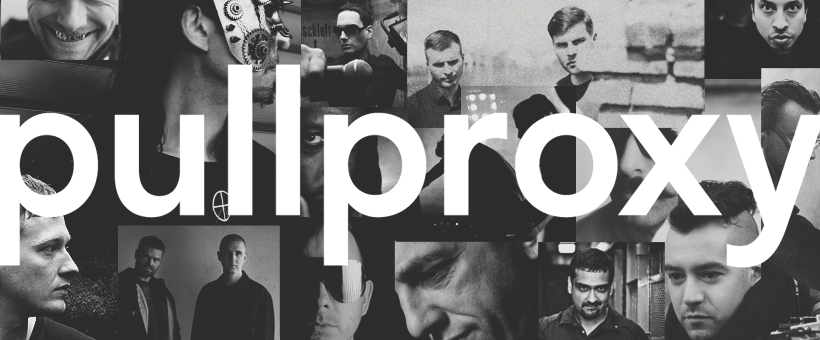
NB: e per un ritratto ancora più preciso, un’altra caratteristica che di certo a Carola non manca è l’umiltà, ve lo possiamo assicurare (così, per inciso). Ma ora è meglio lasciarvi alle sue parole, sicuramente più interessanti, tra musica, diritti e bei ricordi.
“I berlinesi occidentali prendevano coscienza del fatto che nella scena underground di Berlino Est si finiva in prigione per la propria passione musicale, per sembrare diverso, per essere di mentalità aperta.”
Signore e signori, Carola Stoiber. (Applauso)
Visualizza questo post su Instagram
Ciao Carola! È un onore oltre che un piacere averti qui su Parkett. Benvenuta. Raccontaci qualcosa di te, siamo curiosi di conoscere il tuo background, chi era e chi è Carola Stoiber.
Ciao Nicola, è un piacere parlare con te.
Sono Carola Stoiber, abito a Berlino dal 1984, e gestisco l’agenzia Pullproxy da – ancora una volta il tempo è volato – più di 10 anni. Ci occupiamo di pubbliche relazioni per pubblicazioni e artisti, booking e management.
Lavoro e sono connessa al mondo elettronico dalla fine degli anni ’80. Ho studiato storia, giornalismo e politica. Scrivevo anche per riviste e giornali incentrati sulla musica e la cultura e dirigevo un programma radiofonico a Berlino prima che la mia vita diventasse “Techno Total“. Da studente, ho iniziato a fare la segretaria dell’Interfisch Records, che è diventata la Tresor Records all’inizio degli anni ’90, quando il club ha aperto. Sono diventata il direttore generale dell’etichetta e sono stata responsabile delle pubblicazioni dei dischi del Tresor fino al 2010 circa. Ciò significa che io e il team abbiamo fatto tutto: dall’ingaggio degli artisti, alla consegna dei CD e dei vinili (all’epoca non c’era Internet!) nei negozi, ci siamo incaricati della promozione, di andare a prendere gli artisti all’aeroporto e, alla fine, di andare al Tresor Club ogni fine settimana, perché i nostri amici artisti o i DJ che conoscevamo stavano suonando lì.
Poi lunedì di nuovo in ufficio.
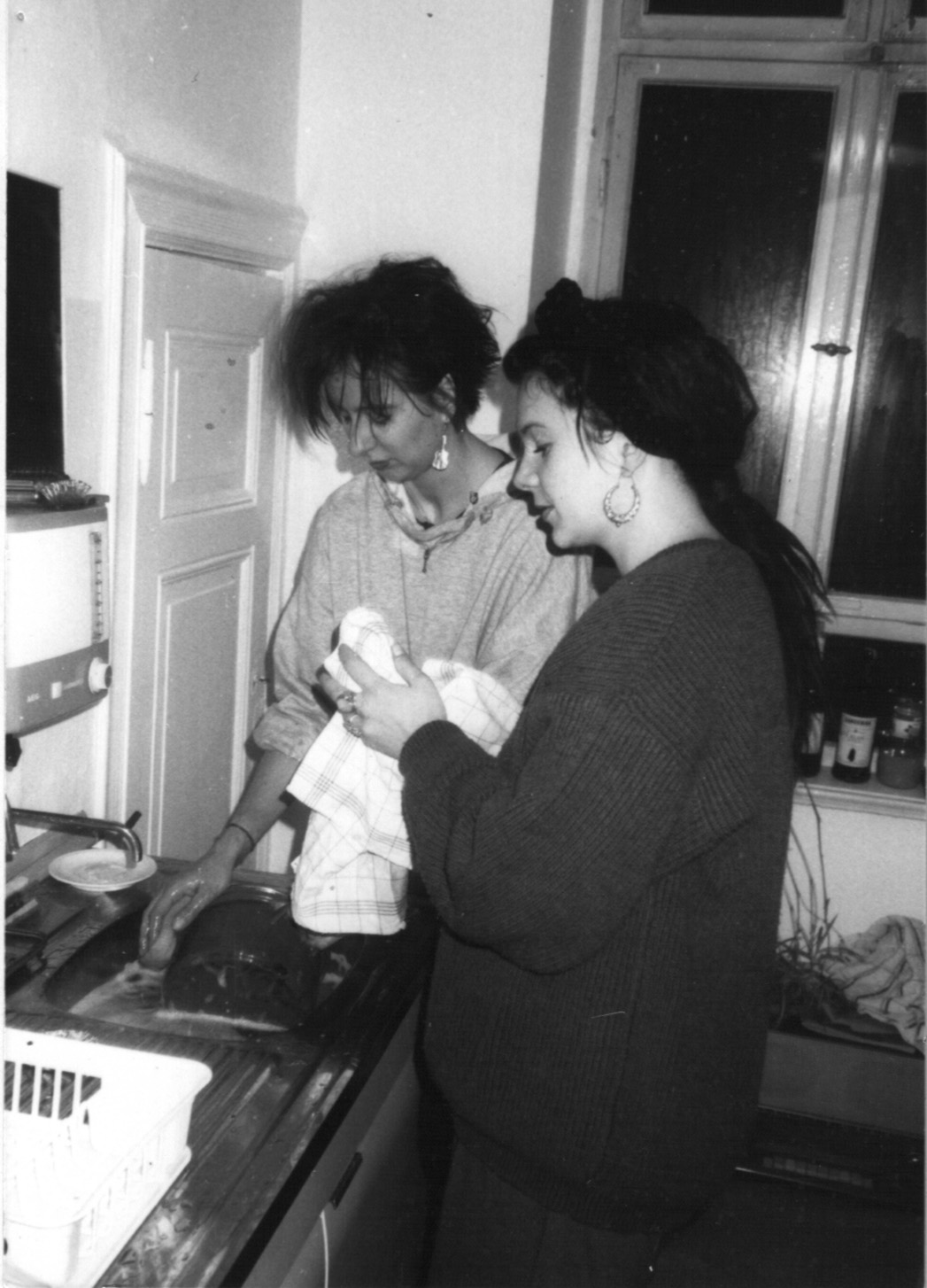
Insomma non ti annoiavi. Ma quando è iniziata la tua passione per la musica elettronica?
Il mio amore per la musica elettronica è iniziato con le uscite di Underground Resistance all’inizio degli anni ’90. Il mio background musicale è Punk Rock, New Wave e musica per chitarra più dura, ma ovviamente ascoltavo crossover elettronici e roba da club quando mi capitava. Ma il fuoco mi è saltato addosso quando Jeff Mills, Mike Banks e Robert Hood hanno iniziato a pubblicare su UR.
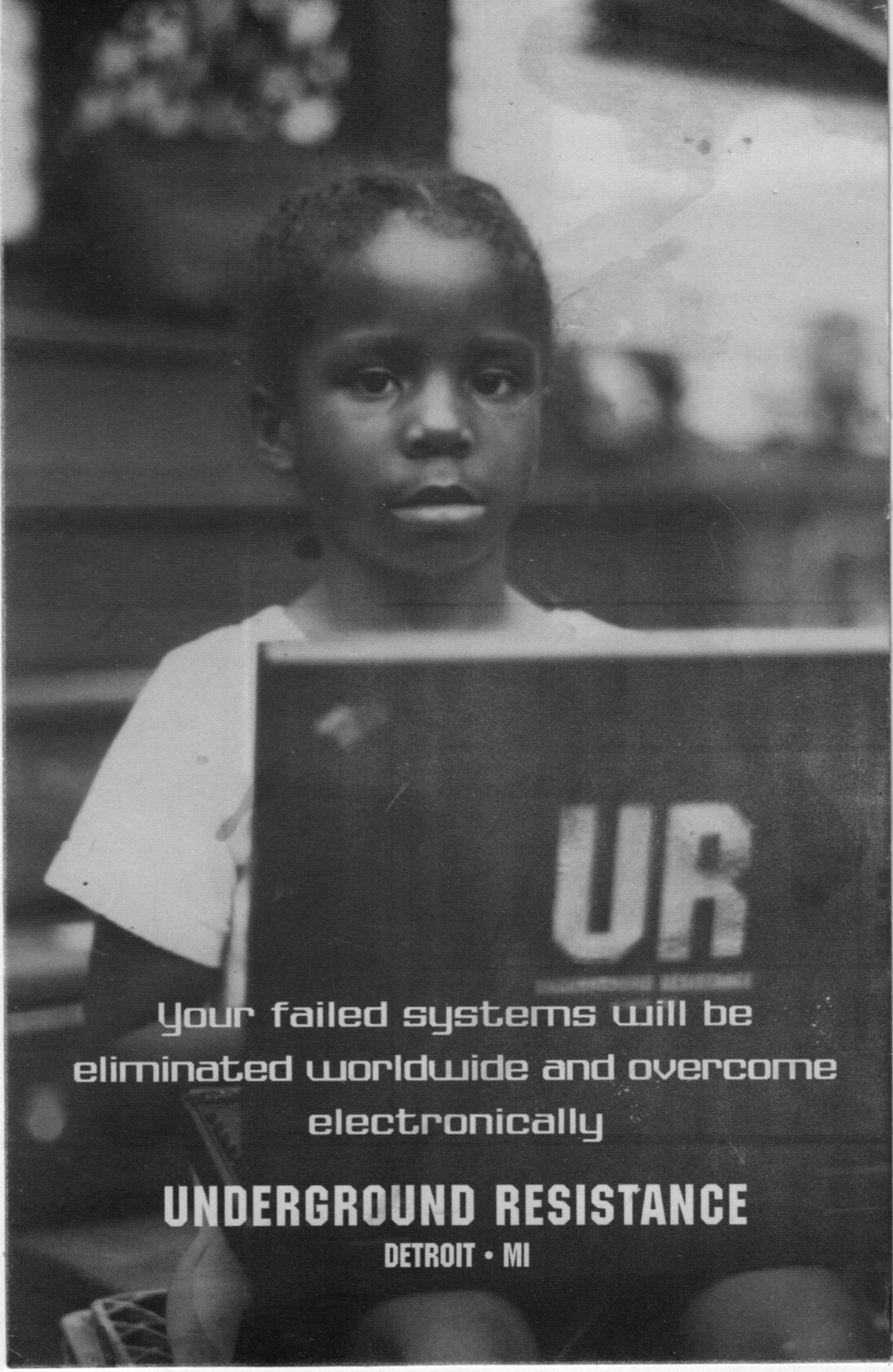
A proposito, restando sugli Underground Resistance, è chiaro che c’è un legame tra i due suoni, quello americano e quello tedesco. Qual è il rapporto tra Detroit Techno e Berlin Techno?
Ci sono molte sfaccettature diverse. Sono stati scritti libri per ripercorrere l’intero quadro. Posso darne solo una breve valutazione individuale e alcuni ricordi personali:
Metà/fine anni ’80: in entrambe le città c’erano produttori con lo stesso stato d’animo che non si conoscevano ancora, visionari del suono che ricevevano la spinta rivoluzionaria dai Kraftwerk per andare avanti nel nuovo, direzioni sonore coraggiose e inesplorate. I Kraftwerk hanno avuto un’influenza importante per i creatori e produttori di Detroit come Juan Atkins, Jeff Mills, Mike Banks, Robert Hood (solo per citarne alcuni) nella creazione di nuovi suoni.
vedi: Juan Atkins e Wolfgang Flur dei Kratfwerk lavorano ad un nuovo album
Allo stesso tempo, i brani e gli album fondamentali dei Kraftwerk hanno portato gli artisti elettronici tedeschi e berlinesi a un livello superiore. Quindi le strade sono andate così:Germania/Kraftwerk hanno influenzato gli Stati Uniti, in particolare Detroit, poi le produzioni di Detroit hanno influenzato la Germania, in particolare Berlino e da qui, avanti e indietro, da e verso Detroit. Con il senno di poi questa connessione doveva avvenire a causa dei flussi paralleli presenti a Detroit come a Berlino. Andare direttamente a Detroit nei primi anni ’90 mi ha fatto capire.
Berlino: una città dura e piena di smog (riscaldamento a carbone), con la parte orientale che dormiva nelle case buie, vecchie e marce di cui nessuno si preoccupava. Edifici dell’industria tessile abbandonati. Nessun colore. Strade cattive.
Detroit: edifici abbandonati. Nessuna vita da centro urbano. Rovine come relitti visibili di un’epoca con una fiorente industria automobilistica. Strade cattive.
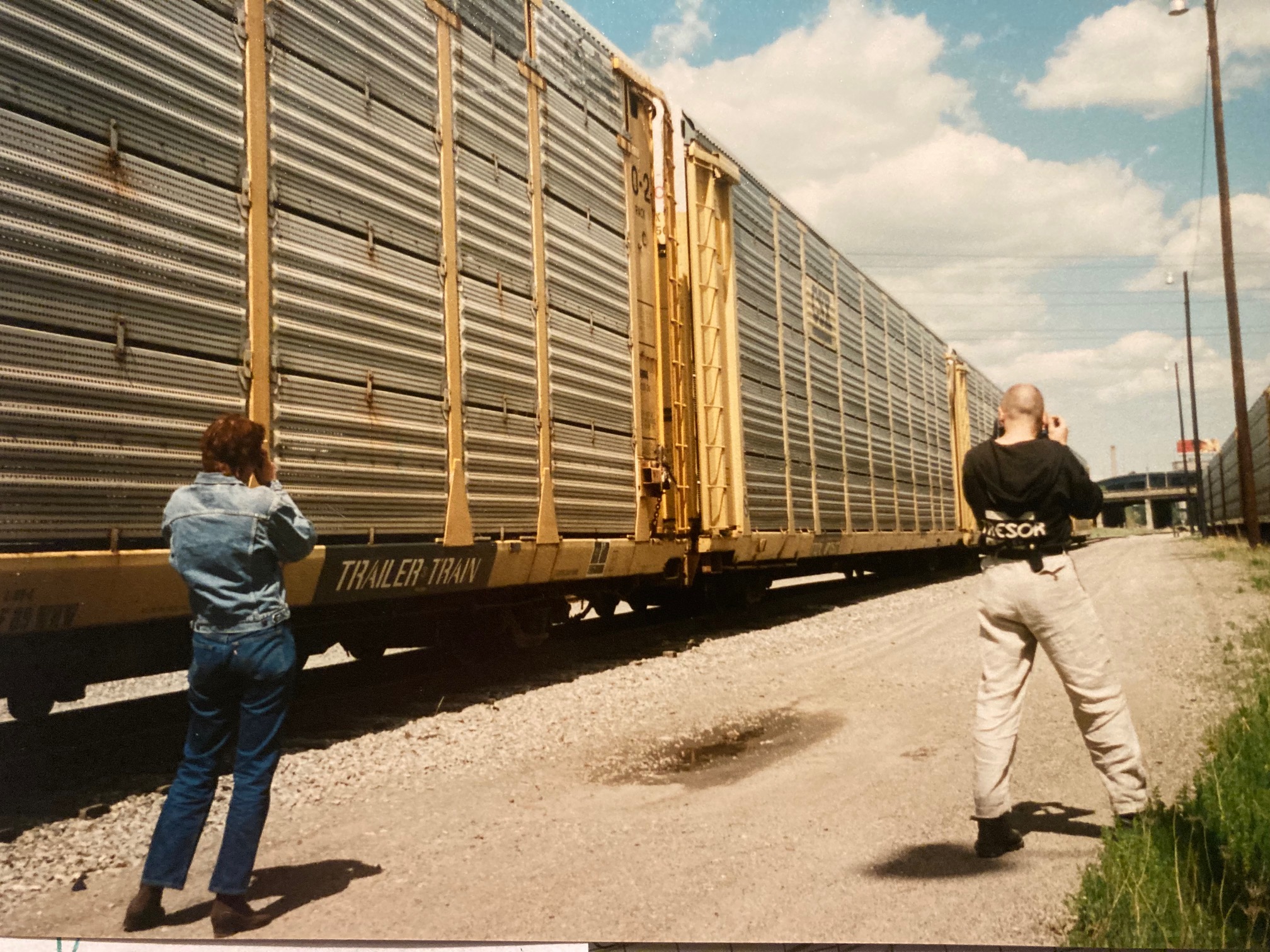
Treni a Detroit
Le storie di entrambe le città sono ovviamente diverse, ma entrambe hanno avuto la stessa atmosfera tra oscurità, depressione e un sonnecchiante innalzamento a tempi migliori e nuovi. Quindi il suono elettronico creato in tutte e due le città alla fine degli anni ’80 e all’inizio degli anni ’90 era duro (ehm), turbolento, ansioso, restio: Techno. Quando gli artisti di Detroit sono arrivati per la prima volta a Berlino, si sono trovati in un’atmosfera cittadina simile con altri artisti e giovani aperti e pronti per comprendere il loro sound.
L’equipaggio di UR è rimasto sbalordito dall’assetto e dalla durezza del Tresor. Il Tresor è stato il primo club in Germania in cui è stato possibile eseguire la propria musica nel modo desiderato e dove è stata compresa. Anche quando i primi dischi di importazione da Detroit arrivarono a Berlino, gli artisti berlinesi fecero una scoperta: ci sono musicisti laggiù (USA – Detroit, ndr) con la stessa mentalità e comprensione della musica che abbiamo noi qui. Per tanto questo collegamento è stato, finora, una delle fonti più importanti per lo sviluppo musicale di entrambe le città e per i loro artisti.
E allora, ripensando agli inizi del tuo lavoro, che aria respiravi nella scena alla fine degli anni ’80? Cosa pensi sia cambiato di più?
Nell’aria c’era l’alba di una nuova era, soprattutto a Berlino con lo status speciale della città e senza più il muro. Potevi respirare libertà, unità, cambiamenti nella vita, creatività, curiosità e innovazione e potevi sentire e vedere i cambiamenti nel suono, nelle piste da ballo, nella cultura musicale. Non era necessario alcun club prestabilito. C’erano così tanti edifici e luoghi inesplorati e abbandonati a Berlino dove la gente organizzava feste e persone di ogni estrazione (musicale) si riunivano per festeggiare con il nuovo sound: la Techno. L’unificazione di Oriente e Occidente è avvenuta qui prima!
Ciò che è cambiato di più è che è diventato un business mondiale. Ma questo non è la prima volta che accade alla musica, è uno sviluppo logico se qualcosa come il nostro – chiamiamolo movimento elettronico – attira molti giovani. Ha creato posti di lavoro stabili per migliaia di persone, ma è anche diventato un business competitivo per tutti i soggetti coinvolti, se vuoi farti un nome e sopravvivere.
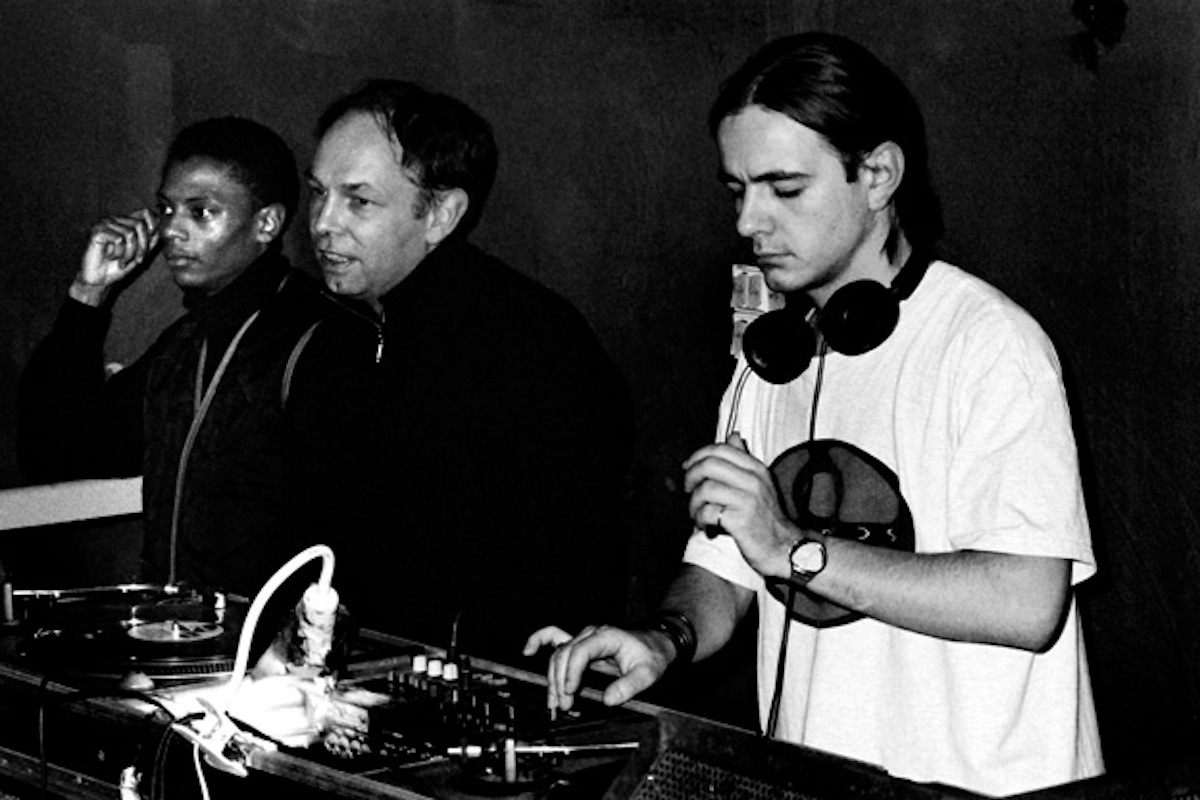
In secondo luogo, molto influenti sono stati gli sviluppi tecnici folli (veloci). Hanno cambiato il modo di produrre, suonare ed esibirsi, e hanno permesso a molti artisti di iniziare a produrre e ad esibirsi senza saper suonare strumenti o avere un proprio grande studio. E la musica elettronica ha preso il sopravvento. Nella musica pop la percentuale principale delle canzoni viene prodotta elettronicamente in questi giorni.
Brian Eno, in una sua conferenza stampa a cui abbiamo partecipato, ha detto che questo di oggi è un momento estremamente interessante in relazione alla scena musicale e a ciò che possiamo usare. Negli anni ’60/’70, ma potremmo anche dire nei primi anni ’80, era difficile fare un album, farlo produrre e pubblicare. Non venivano pubblicati molti dischi e tutti sapevano cosa stava succedendo nella scena musicale.
Ma ora le cose sono cambiate, nel senso che non c’è più un canone. Allora come si orienta Carola Stoiber, come scopri nuova musica, come fai a distinguere la qualità in questo oceano di informazioni in cui rischiamo di annegare?
Ci sono 80.000 brani pubblicati ogni singolo giorno… Davvero un oceano senza coste. Scopro nuova musica elettronica grazie alla mia agenzia. Sono fortunata che la mia passione sia anche il mio lavoro. Le etichette e gli artisti pubblicano le loro uscite per la promozione e quindi posso ascoltare molta nuova musica che hanno firmato o registrato. Controllo anche i nuovi nomi e le loro produzioni o brani che vengono riprodotti nei set di DJ che mi piacciono. E come sempre: io e i miei amici ci scambiamo consigli su band e artisti che troviamo “da qualche parte”. Prima potevamo solo ascoltare i dischi, ora di solito inviamo un collegamento a un video o a una traccia come consigli personali.
Resisto al metodo dei grandi canali: se ti piace questo, probabilmente ti piace anche quest’altro. Nessuno mi dice qual è il mio gusto musicale. E ascolto di nuovo molte radio, nel modo tradizionale: sapendo quando sono in onda i bravi DJ radiofonici, ascoltando in modo specifico i loro programmi: dall’elettronica alla chitarra, tutti i generi. E vedo anche alcuni spettacoli su Internet con “programmazione generata dall’utente” (che comunque funziona), senza nessuna conversazione reale. Ad esempio, uno dei canali che mi piaceva trasmetteva canzoni diverse che mi facevano sempre smettere di lavorare e correre alla radio per vedere chi fosse: ed era sempre Nick Cave. Così ho finalmente scoperto che anche lui mi piaceva molto.
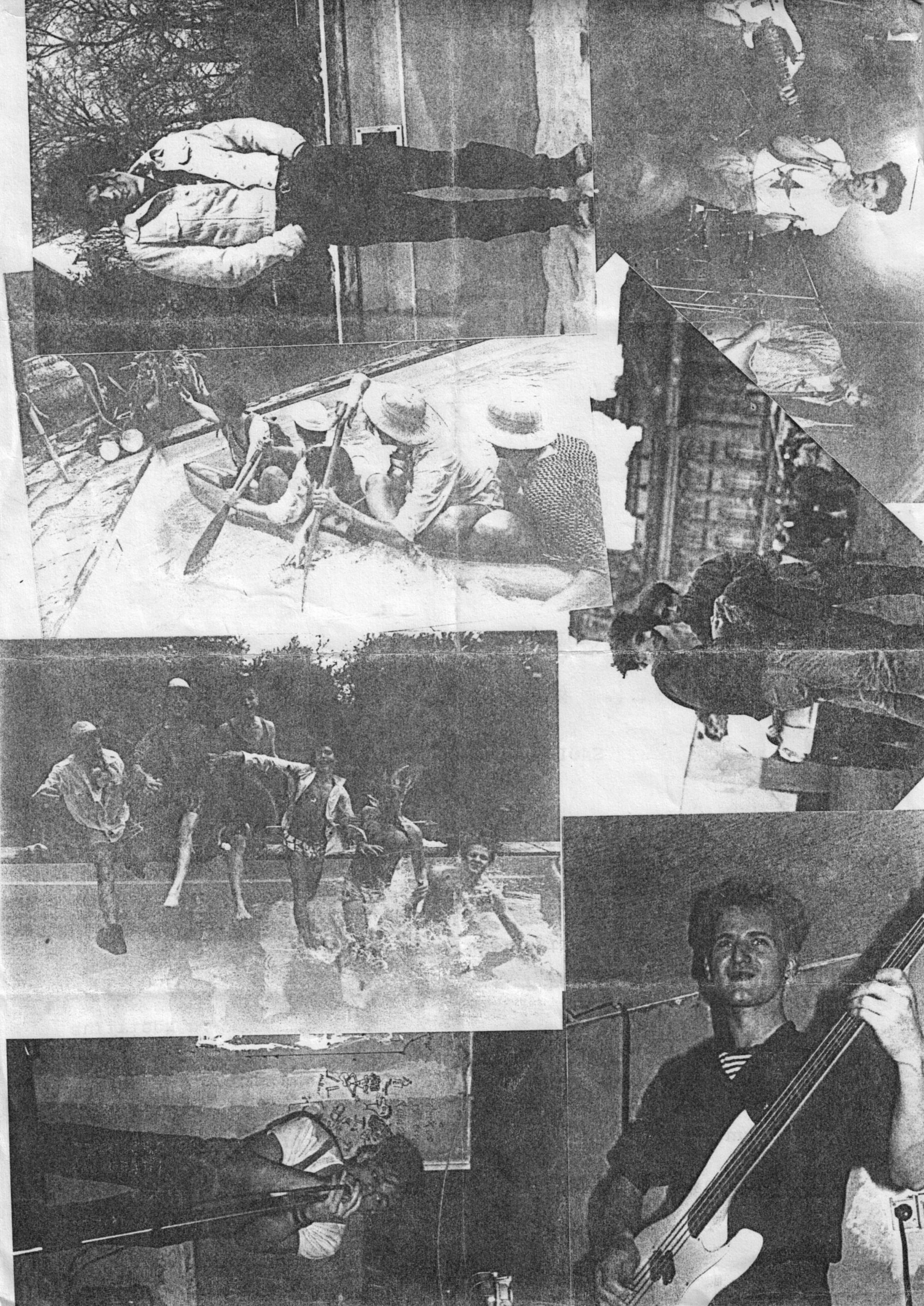
leggi anche: Brian Eno si racconta e ci presenta ‘Brian Eno x Trentino’: “L’arte è il luogo in cui ci abbandoniamo”
Ora che ci penso, facendo due calcoli banali, Carola Stoiber era a Berlino il giorno in cui è caduto il muro. Come hai vissuto quei momenti, gli anni prima della caduta, e come è stato il dopo?
Quegl’anni, la mia vita prima della caduta del muro, sono stati dedicata a “vivi la tua vita come vuoi” cosa che era possibile a Berlino Ovest in quel periodo Punk/Postpunk: la musica, vedere le band, andare nei club Postpunk/New Wave o in quelli gay. Berlino Ovest era la città più speciale in cui vivere in Germania, con scene underground per tutti i tipi di musica e arte, la città più diversificata (per usare una delle “nuove parole”) e creativa in Germania a causa dello status speciale. Non avevamo orari di chiusura per i club e per i bar come in altre città tedesche (l’altra eccezione era Amburgo, come città con un porto). Questo ha attirato i giovani tedeschi già ai tempi. Le persone erano di mentalità aperta anche se c’era il muro – o meglio – a causa del muro. Di mentalità aperta ma reclusi, circondati…
E da giovane uomo: se eri nato o avevi la residenza a Berlino, non eri chiamato alla leva obbligatoria, a fare il militare. Quindi molti ragazzi si sono trasferiti a Berlino per evitare test complicati, o se non volevi essere addestrato alle armi e potenzialmente andare in guerra. Quindi la città era “punto di incontro” e crogiolo di persone della scena di sinistra e vicino alla sinistra: ci si chiedeva se tutto era a posto nel sistema, si era molto consapevoli, attenti. Si riusciva a trovare una grande comunità di individui non allineati, con un pensiero politico proprio, o che pensavano la politica in un modo diverso. Ciò ovviamente si rifletteva nella scena musicale già prima della Techno.
Dopo la caduta del muro, all’improvviso avevamo una nuova città da esplorare. Come uno straniero che guida in una città che non conosce… dalle nostre parti sapevamo tutti i modi, le strade, come muoverci. All’improvviso è apparsa anche un’altra zona della tua città di cui non avevi idea (e viceversa per i berlinesi dell’est). Quindi siamo usciti tutti per esplorarla, con tutti i problemi: dal “perdersi” all’incontrare persone fantastiche. I berlinesi occidentali prendevano coscienza del fatto che nella scena underground di Berlino Est si finiva in prigione per la propria passione musicale, per sembrare diverso, per essere di mentalità aperta. Tutti insieme abbiamo sperimentato una nuova libertà e il nuovo suono Techno ne è stata la colonna sonora.
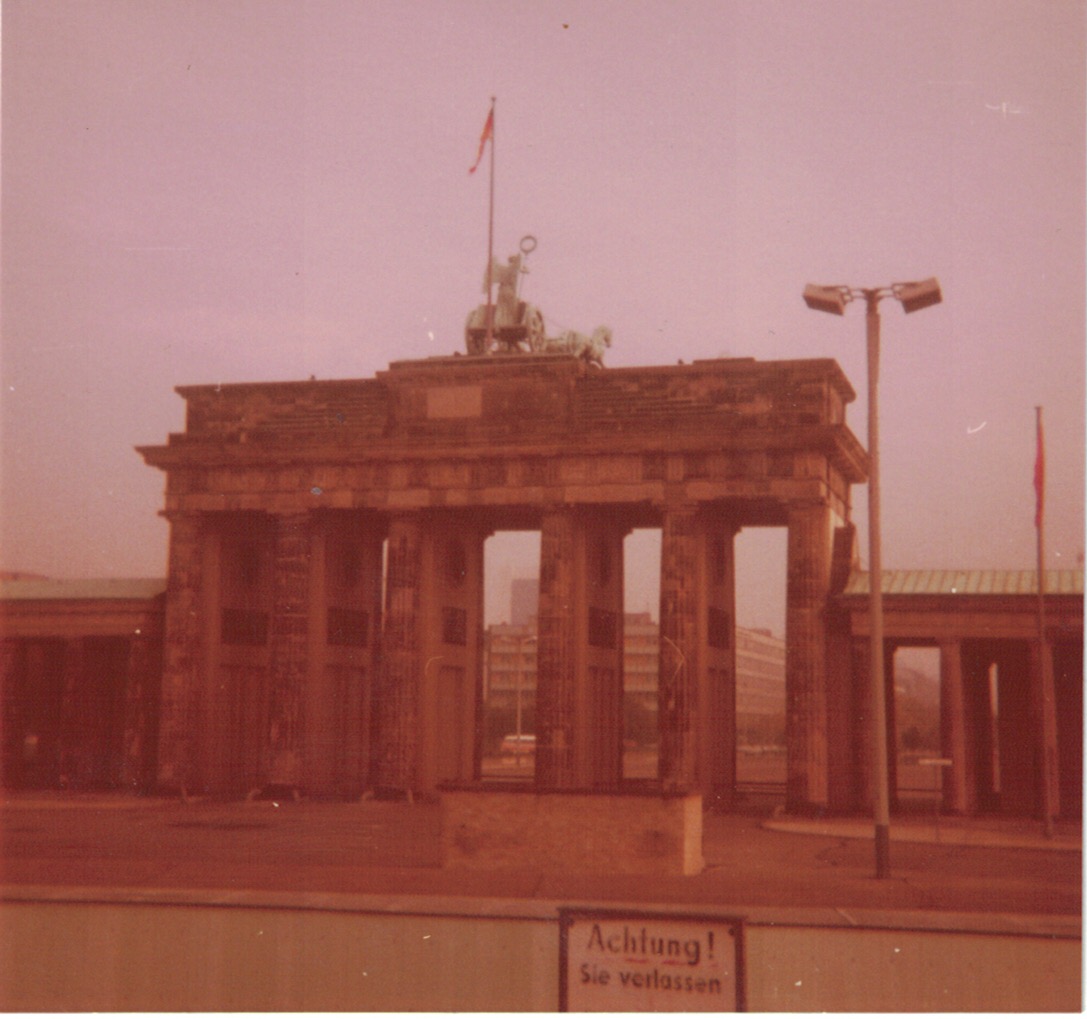
È pur vero che in quegli anni nella capitale tedesca si respirava un’atmosfera vibrante, piena di fascino decadente. Tutti venivano in città, David Bowie, Iggy Pop, c’era Nina Hagen, solo per citarne alcuni. Fu la culla di una controcultura che poi probabilmente sfociò nella club culture. Cosa ne pensi? Hai notato questo passaggio?
Sì certo. Gli artisti (ora molto popolari) che vivevano a Berlino ne facevano comunque parte e quelli che ci venivano volevano respirare l’atmosfera speciale, vivere la scena dei club e dei bar, incontrare persone speciali. Si sono ispirati, hanno registrato qui e hanno influenzato la scena e i club della città (e del mondo musicale) di tutti i generi e viceversa.
Qualcosa è successo qui e di sicuro ha cambiato la cultura del club in tutto il mondo. Magari dicendolo con i Depeche Mode: “Tutto conta in grandi quantità”.
Anche perché penso che i primi clubber ascoltassero altre band come Talking Heads, Joy Division, Bauhaus, un po’ di krautrock. O mi sbaglio?
Non posso davvero parlare per i primi clubber in generale. I primi clubber di Berlino erano un conglomerato di persone di età diversa, background musicale diverso e diverse città con diverso accesso alla musica, alla radio o ai dischi. Penso che prima o poi tutti abbiano scoperto le band che menzioni qui perché sono le radici del movimento elettronico. Ma di sicuro Blue Monday dei New Orders è stata una di quelle canzoni che ha lasciato tutti a bocca aperta allo stesso tempo. I “professori della musica” nel ricercare le radici del genere, sicuramenrte, avrebbero dovuto ritrovare gruppi come Joy Division, Talking Heads, B52 per citarne solo alcuni. Se poi ascoltassero davvero anche queste band e quanto spesso: chissà?
Ma io le ascoltavo: sì!: Joy Divison, Talking Heads, Bauhaus, Sex Pistols, The Cure, Nina Hagen Band, Ideal, Sisters Of Mercy, Killing Joke, Devo, Spliff, Stranglers, The Clash, The Ruts e un sacco di band locali di Berlino che ormai non esistono più…
E se in questo momento potessi tornare indietro, quale sarebbe il ricordo che vorresti rivivere una seconda volta?
Per prima cosa voglio dire che: non voglio sperimentare nulla una seconda volta nella vita. I momenti accadono proprio in un istante particolare. Ma ripensandoci, non mi dispiacerebbe rivivere i miei tempi a New York City, al New Music Seminar 1991, conoscere la gente della scena musicale di New York, il mio amico (da allora) Abe Duque, andare a Limelight, vedere come funziona la vita notturna con tappeti rossi e file di guestlist.
Una sera mi sono imbattuta in Jeff Mills che viveva lì anche lui in quel momento. Già ci conoscevamo da prima. Ma siamo andati indipendentemente nello stesso cinema nello stesso momento – in una città di 8 milioni di persone! – Lui è andato a vedere “Brazil” (il taglio del regista, credo), io sono andato a vedere “Singles”. Ma alla fine, i ricordi sono buoni come ricordi.
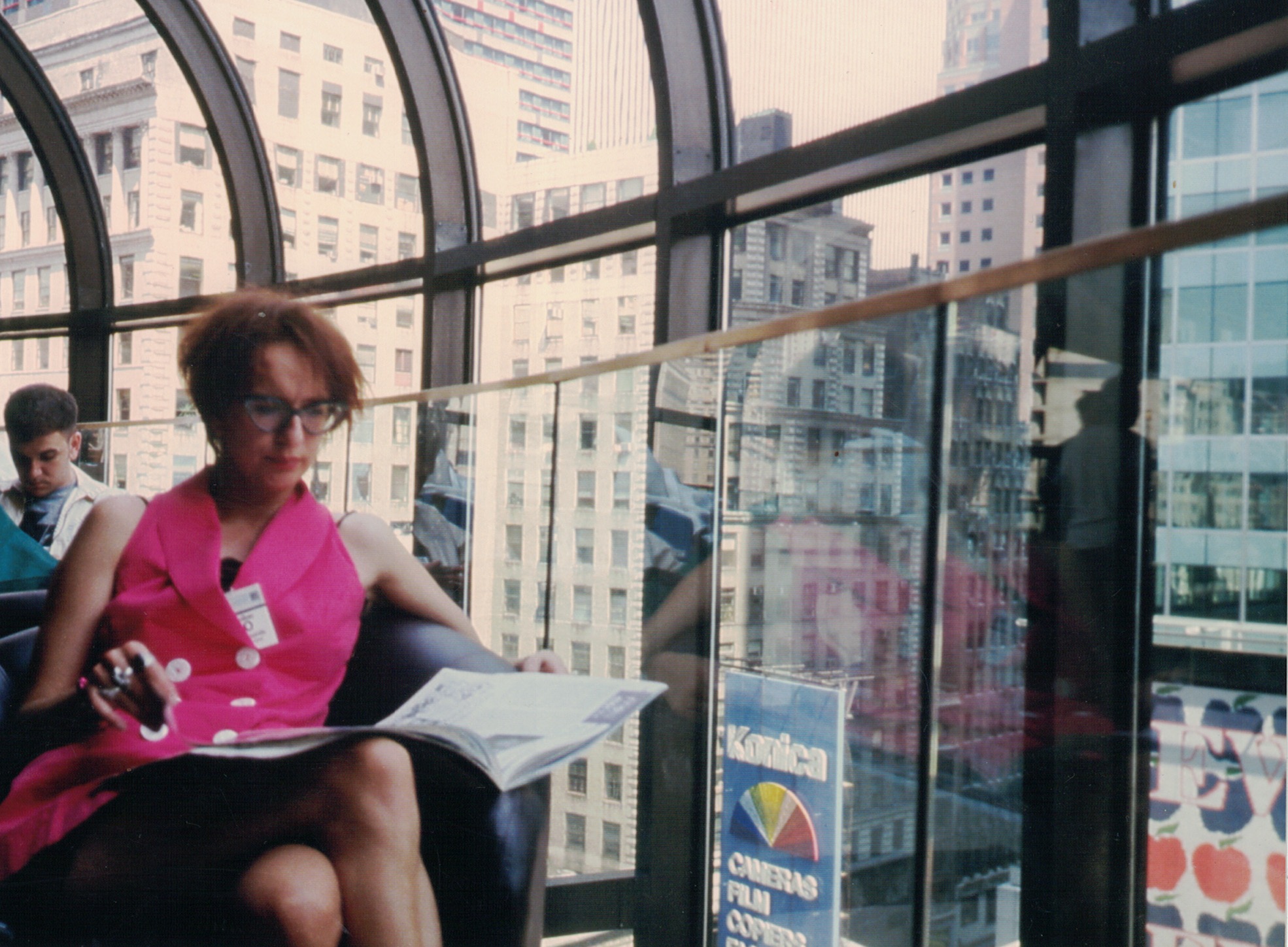
Sicuramente momenti indimenticabili. Ma torniamo al presente, vista la tua grande esperienza nel settore, da cosa dipende secondo te il successo di un artista?
Talento, disciplina, essere in missione per la musica, credere e avere fiducia in se stessi, essere coraggiosi per guardare in avanti e lavorare in prospettiva, il che significa non solo realizzare ciò che pensi che le persone si aspettano da te, ascoltare i tuoi buoni amici e consulenti anche se criticano e non prenderla sul personale, ma analizzare da solo e poi prendere decisioni. Dai sempre il meglio possibile. Se sai di averlo fatto e non potresti farlo meglio in quel momento, funzionerà! E crea i tuoi fottuti social.
Negli ultimi tempi si è parlato molto di disuguaglianze di genere e quanto queste influiscano ancora oggi sopratutto nel lavoro. Ci sono molte eccellenti DJ, produttrici, manager e professioniste del settore in tutto il mondo. Ma dall’interno, cosa puoi dirci a riguardo? Quanto è presente questa differenza e quanto si nota?
La disuguaglianza di genere è un argomento molto complesso di cui parlare. Deve essere analizzato esaminando la storia, la cultura e la religione di ogni paese perché gli sviluppi dei diritti delle donne, ad esempio, sono diversi ovunque. In Germania il marito doveva dare il suo consenso per permettere alla moglie di lavorare, fino agli anni ’70! L’equalizzazione fa passi molto lenti e doveva e deve essere combattuta molto duramente. Spesso si faceva un passo in avanti e poco dopo ne venivano fatti due indietro. Adesso sta succedendo di nuovo. Quindi è positivo che la consapevolezza sia qui più che mai per tutti i sessi.
Nella scena elettronica so che tutti erano i benvenuti e accettati. Abbiamo sempre vissuto tutto insieme. Ma ora i tempi sono ancora più difficili perché abbiamo troppe forze ultraconservatrici che si stanno rafforzando nuovamente, movimenti inspiegabili contro la democrazia, dittature e una parziale regressione verso il centro più una guerra in Europa nel 2022… Basta incrociare le dita e sperare che le varie iniziative aiuteranno a stabilire una base solida anche nella mente delle persone per una reale uguaglianza giuridicamente riconosciuta, senza fare più passi indietro.
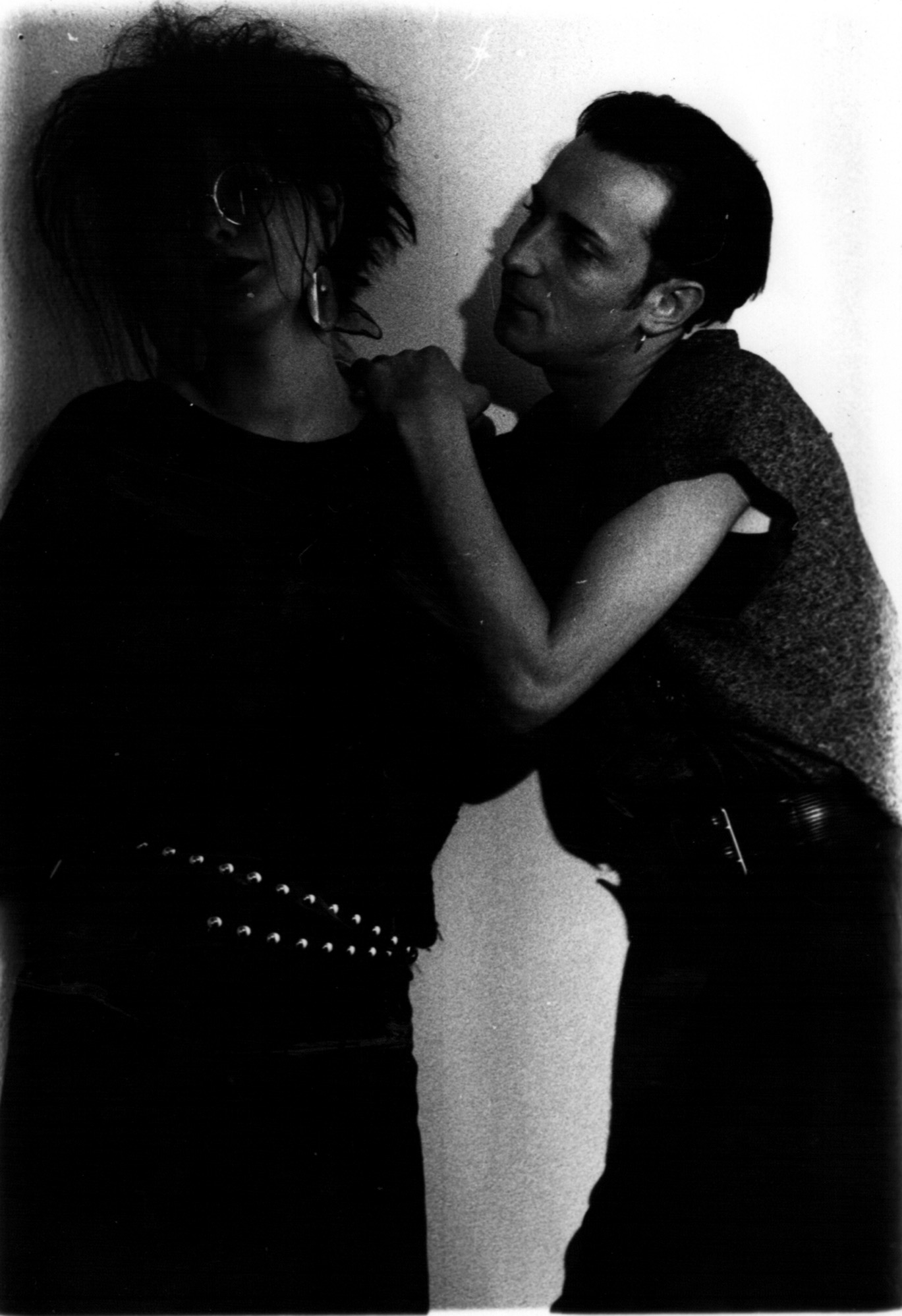
Ahimè, siamo giunti quasi al termine della nostra chiacchierata, e per salutarti ti chiedo: Carola Stoiber, se tu dovessi scegliere i tre album (non necessariamente di musica elettronica) che diciamo ‘ti hanno cambiato la vita’ quale sarebbe la classifica?
The Cure – Boys Don’t Cry
Helmet – Strap It On
X-102 – The Rings Of Saturn
Ma devo aggiungere un quarto album che mi ha cambiato la vita: Kyuss – Blues For The Red Sun
“Boys Don’t Cry” è la colonna sonora anche della mia vita. Siamo arrivati alla fine Carola. Adesso, come al solito, mi piace lasciare uno spazio vuoto dove i nostri ospiti possono esprimersi liberamente e condividere i loro pensieri e le loro richieste, se ne hanno voglia.
Chiedo: libertà, libertà di parola, di esprimersi nel modo desiderato, che le persone si rispettino e che tutti facciano qualcosa per rendere il mondo un po’ migliore, anche le piccole cose. Sii responsabile di te stesso e di ciò che fai. Forse suona un po’ patetico, ma sono cresciuta con e in questo modo, e sono stata in grado di condurre la mia vita così lontano come volevo. Anche grazie al movimento elettronico. Pace!
Condivido i tuoi pensieri e ti ringrazio. Grazie Carola, è stato veramente piacevole e costruttivo parlare con te.
Grazie a te Nicola, a presto. Ciao.
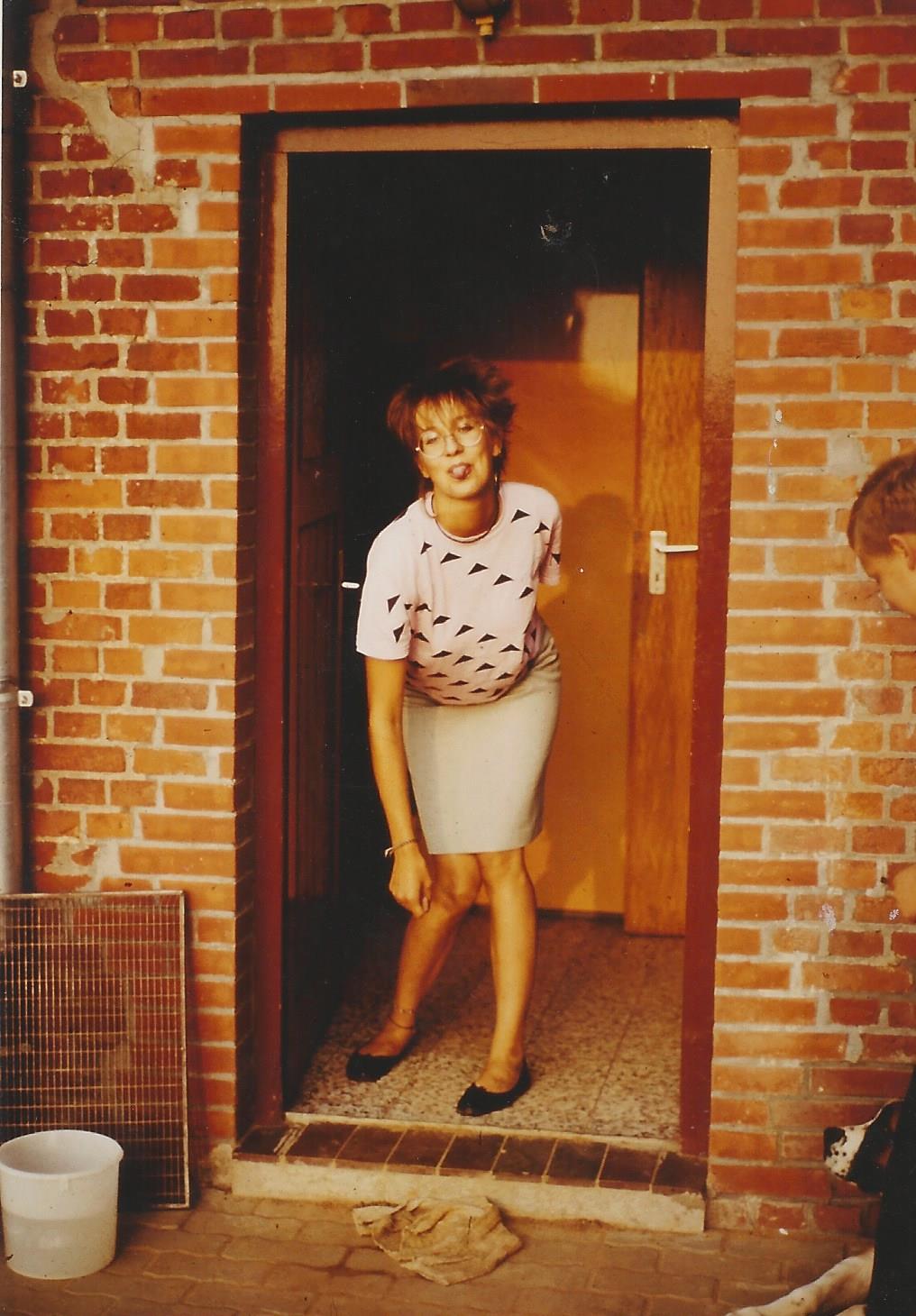 Copertina: Carola Stoiber by Aleander Hüfner, 1985
Copertina: Carola Stoiber by Aleander Hüfner, 1985
Alcune foto concesse da Carola Stoiber, archivio privato.
ENGLISH VERSION
Ciao Carola! It is an honour as well as a pleasure to have you here on Parkett. Welcome. Tell us something about yourself, we are curious to know your background, who she was and who Carola Stoiber is.
Hello Nicola, a pleasure talking to you.
I´m Carola Stoiber, based in Berlin since 1984. I’m running the Pullproxy agency now for – already again as time is flying – more than 10 years. We are doing public relations for releases and artists, booking and management. I’ve been connected and working in the electronic world since the end of the 80’s. I studied history, journalism and politics. I was also writing for magazines, and newspapers with a focus on music and culture and ran a radio show in Berlin before my life became “Techno total“. As a student, I started to be the secretary for Interfisch Records which turned into Tresor Records at the beginning of the 90ies when the club opened. I became the general manager for the label and was responsible for the Tresor record releases until about 2010. That means the team and I did everything: from signing the artists, getting the CDs and vinyls (back in the days no internet!) in the shops, doing the promo, picking the artists up at the airport and also were at Tresor club every weekend because our artists or artist friends or DJs we know were playing. Then on Monday at the office again.
In short, you weren’t bored, but when did your love for electronic music begin?
My love for electronic music began with the Underground Resistance releases at the beginning of the 90’s. My musical background is Punk Rock and New Wave and harder guitar music but of course, I listened to electronic crossover and early club stuff when it happened. But the fire jumped over when Jeff Mills, Mike Banks, and Robert Hood started to release on UR.
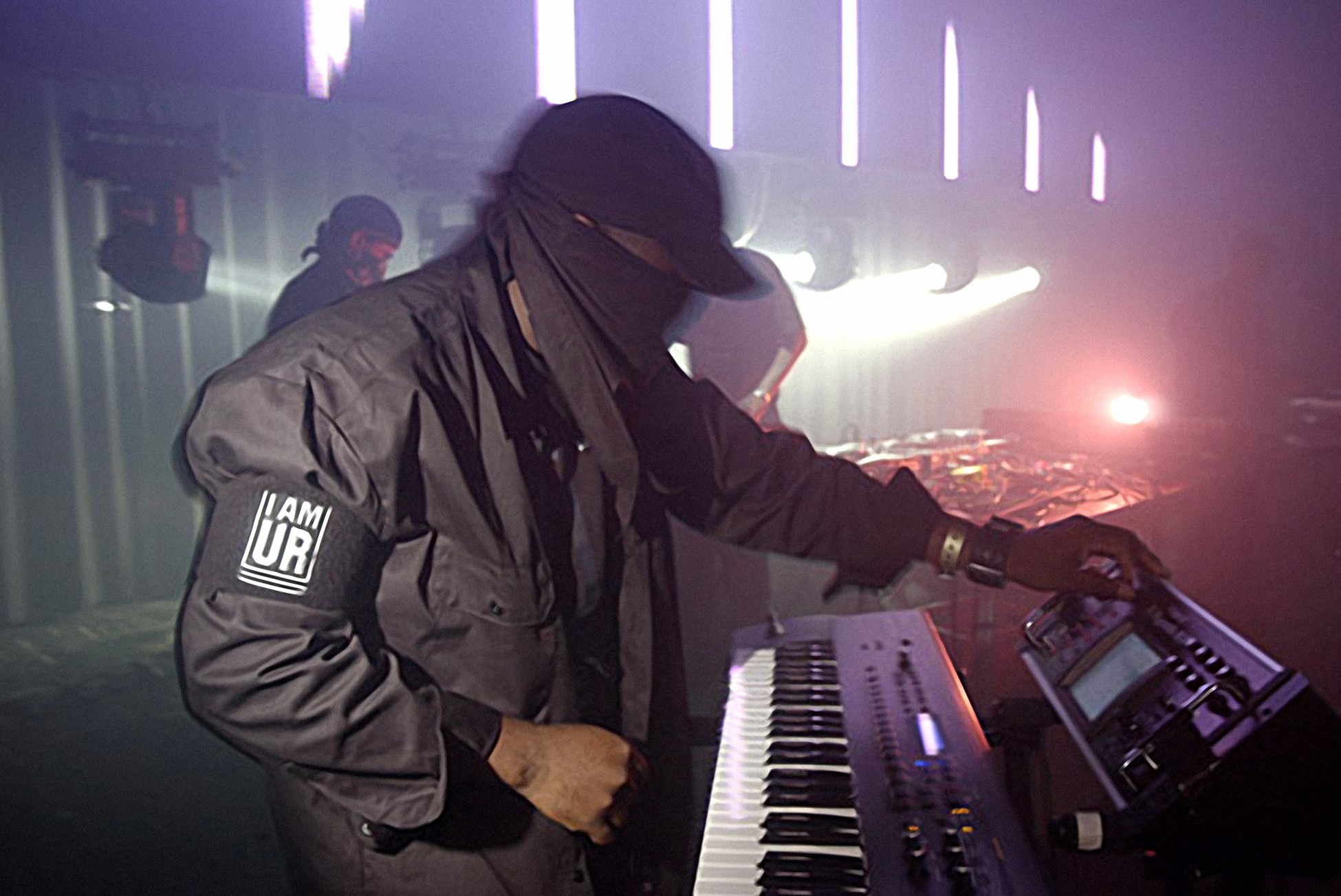
By the way, remaining on the UR, it is clear that there is a link between the two sounds, the American and the German. What is the relationship between Detroit Techno and Berlin Techno?
This has a lot of different facets. To cover the whole picture is a book. So here just few personal memories, a short individual evaluation:
Mid/end of 80ies: In both cities were producers with same state of mind not knowing about each other yet, sound visionaries receiving the revolutionary proof from Kraftwerk to keep on going in new, courageous and unexplored sound directions.
Kraftwerk was an important influence for Detroit originators and producers like Juan Atkins, jeff Mills, Mike Banks, Robert Hood (to name a few) to create new sounds. At the same time Kraftwerk´s milestone tracks and albums took the german and Berlin based electronic artists to the next level.
So the ways went like this: Kraftwerk/Germany influenced USA, especially Detroit, then productions from Detroit influenced Germany, especially Berlin and from here back and forth to and from Detroit. In the hinesight this connection had to happen because of parallel flows in Detroit and Berlin. Going to Detroit in the early 90ies made me understand.
Berlin: a hard, smoggy city (coal heating), the eastern part sleeping in the dark, old, rotten houses nobody took care about. Abandoned fabric buildings. No colours. Bad streets.
Detroit: abandoned buildings. No urban centre life. Ruins as the visible leftovers from a time with a prospering car industry. Bad streets.
The histories of both cities are different of couse but both had the same atmosphere between darkness, depression and a dozing upraise to better and new times. So the electronic sound created in both cities end of 80ies /early 90ies was hard(er), turbulent, anxiously, restistant: Techno.
When the Detroit artists came to Berlin first they found themselves in a similar city atmosphere with other artists and young people open for and understanding their sound. The UR crew was blown away by the set up and hardness at Tresor. The Tresor was the first club in Germany they could perform their music the way they wanted and where it was understood. Also when the first import records from Detroit reached Berlin, the Berlin artists found out: there are musicians over there (USA – Detroit, ed) with the same mind-set and understanding of music. The Detroit-Berlin connection and was an dis one of the important sources for the musical development of the both cities and their artists up to now.
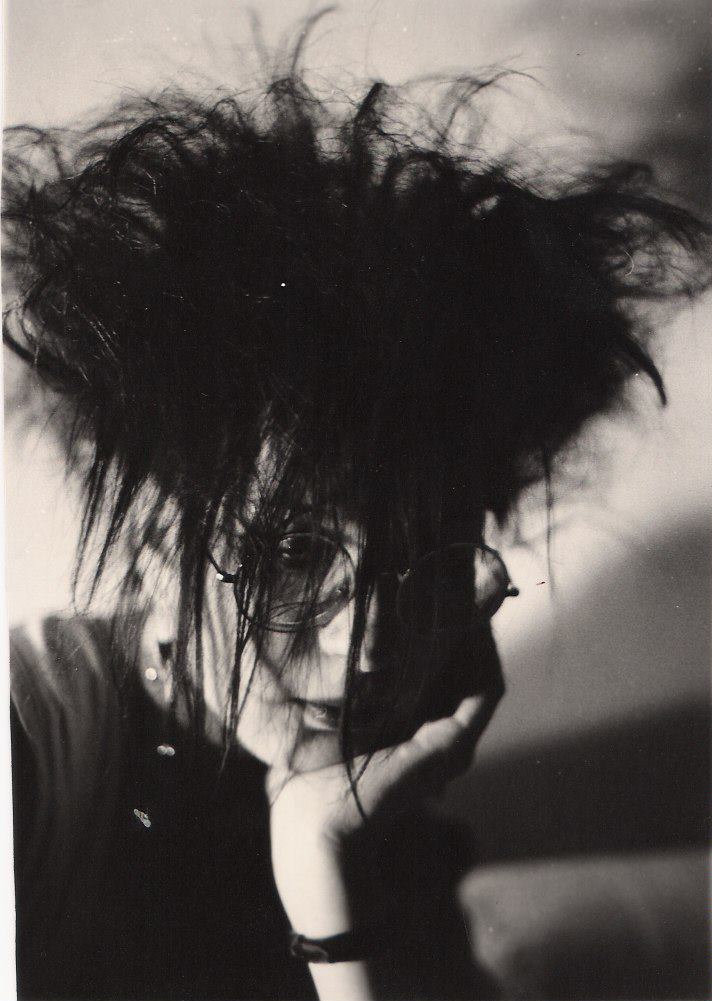
So, thinking back to the beginnings of your work, what air did you breathe in the scene at the end of the 80s? What do you think has changed the most?
In the air was the dawn of a new era, especially in Berlin with the special status of the city, and no wall anymore. You could breathe freedom, unity, changes in life, creativity, curiosity, and innovation and you could hear and see the changes in sound, on the dance floors, in music culture. No established club was needed. There were so many unexplored and abandoned buildings and spots in Berlin where people organised parties and people from all (musical) backgrounds came together to party to the new sound: Techno. The unification of East and West happened here first!
What changed the most is: it became a worldwide business. But that’s not happening to music for the first time and it is a logical development if something like ours – let’s call it the electronic movement – attracts lots of young people. It created steady jobs for thousands of people but also became a competitive business for all involved if you want to make a name for yourself and survive.
Secondly, very influential: crazy (fast) technical developments have changed the way to produce, sound and perform, and have enabled many artists to start producing and performing without knowing how to play instruments or have their own -big- studio. And electronic music took over. In pop music the main percentage of songs are produced electronically these days.
Brian Eno, in a press conference we attended, said that today is an extremely interesting moment in relation to the music scene and what we can use. In the 60s / 70s, but we could also say in the early 80s, it was difficult to make an album, have it produced and released. Not many records were released and everyone knew what was happening in the music scene. But now things have changed, in the sense that there is no longer a canon. So how does Carola Stoiber orient herself, how do you discover new music, how do you distinguish the quality in this ocean of information in which we risk drowning?
There are 80.000 tracks released every single day… Indeed a shoreless ocean.
I discover new electronic music because of my agency. I’m lucky that I my passion is also my work. The labels and artists deliver their releases for promotion and so I get to listen to a lot of new music they signed or recorded. I also check new names and their productions or tracks that get played in sets of DJs I like.
And as always: my friends and I are exchanging tipps of bands and artists we find “somewhere”. Before we played each other the records, now its usually a video or track link we send, but personal recommendations. I resist the big channels method: if you like this, you probably like this. Nobody tells me what my musical taste is.
And I listen to a lot of radio again, the traditional way: knowing when good radio DJs are on and listening specifically to their shows: from electronic to guitar, all genres. And some internet shows with „user generated programme (however that works) and no talk. One of the channels I like played different songs which always made me stop working and running to the radio to see who it is: it was always Nick Cave. So I finally discovered that I really like him too.
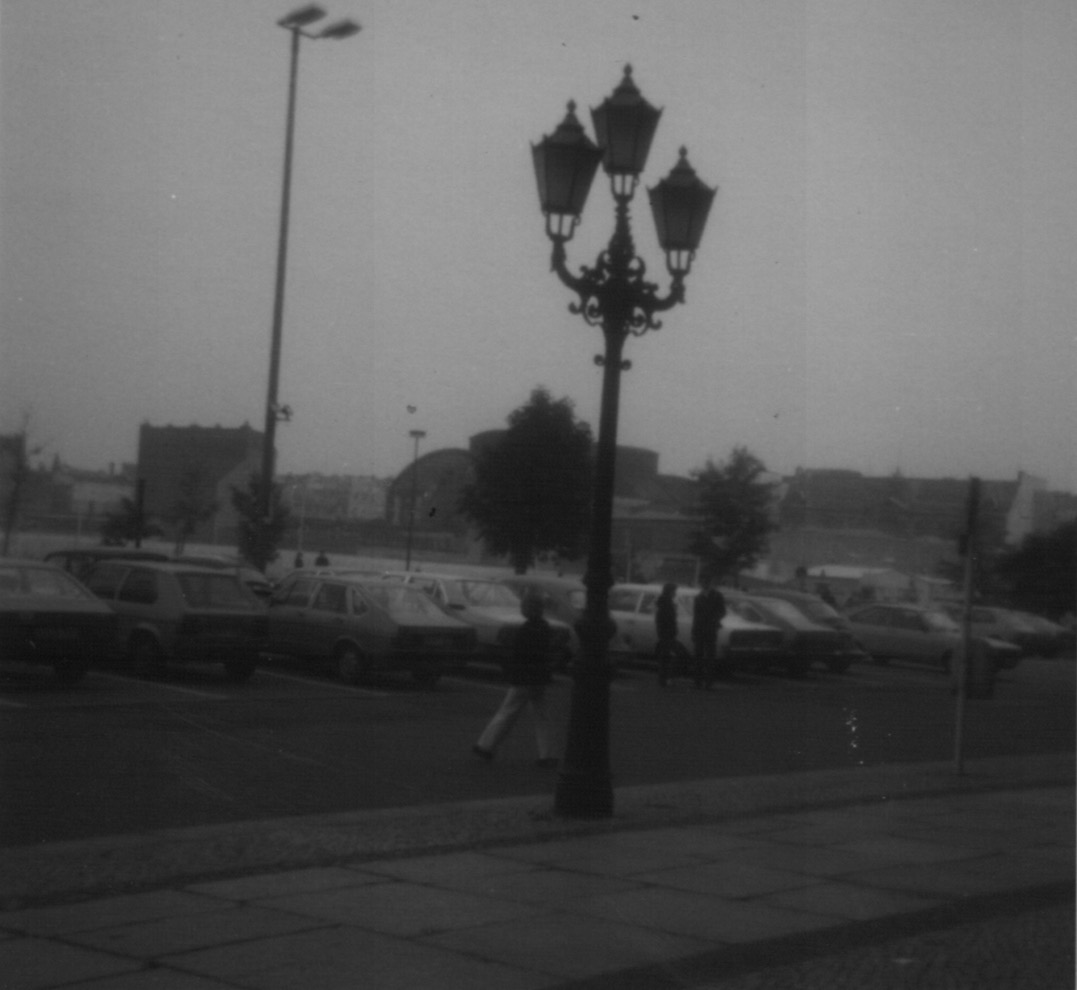
Now that I think about it by making two trivial calculations, so, Carola Stoiber was in Berlin the day the wall fell. How did you live those moments, the years before the fall, and what was the after?
The years, my life before the wall came down was dedicated to “live your life the way you want“ which was possible in West-Berlin in that Punk /Postpunk time: music, seeing bands, going to Postpunk/New Wave or gay clubs. West -Berlin was the most special city to live in Germany, with underground scenes for all kinds of music and art, the most diverse (to use one of the „new „words“) and creative city in Germany because of the special status. We didn’t have closing times for clubs and bars as other german cities. (The other exception was Hamburg as city with a port). This attracted the young germans back in the days already. People were open minded even though – or better – because of the wall. Open minded, closed around…
And as a young man: if you were born or had your residency in Berlin, you were not called into military. So a lot of men moved to Berlin to avoid complicated tests if you didn’t want to get trained on weapons and potentially go into a war. So the city was „meeting point“ and melting pot of left and close to left scene people: questioning if everything is right in the system, being very aware, attentive. You were able to find a great community of un-aligned individuals, thinking political & different. That of course was reflected in the music scene already before Techno.
After the wall came down we had a new city to explore all over sudden. Like a foreigner driving.. in our parts we knew all ways, the streets, how to move around. All over sudden there was a another part belonging to your city too you had no idea of (and vice versa for the East-Berliners). So we all went out to explore the other part, with all the problems: “getting lost”, meeting more great people and the West-Berliners were facing reality about an underground scene in East-Berlin that went to prison for their musical passion, for looking different, for being open-minded. Together we all experienced the new freedom- and the new sound Techno was the soundtrack for it.
Effectively, in Berlin in those years there was a vibrant atmosphere, full of decadent charm. Everyone came to town, David Bowie, Iggy Pop, there was Nina Hagen, just to name a few. It was the cradle of a counterculture which then probably resulted in club culture. What do you think? Have you noticed this step?
Yes, for sure. The (now very) popular artists who lived in Berlin were part anyway and the ones who came to Berlin wanted to breathe the special atmosphere, experience the club and bar scene, meet special individuals, they got inspired, recorded here and influenced the city’s club scene (and music world) of all genres vice versa. One part happened here for sure to change the club culture worldwide. Maybe say it with Depeche Mode: “Everything Counts In Large Amounts“
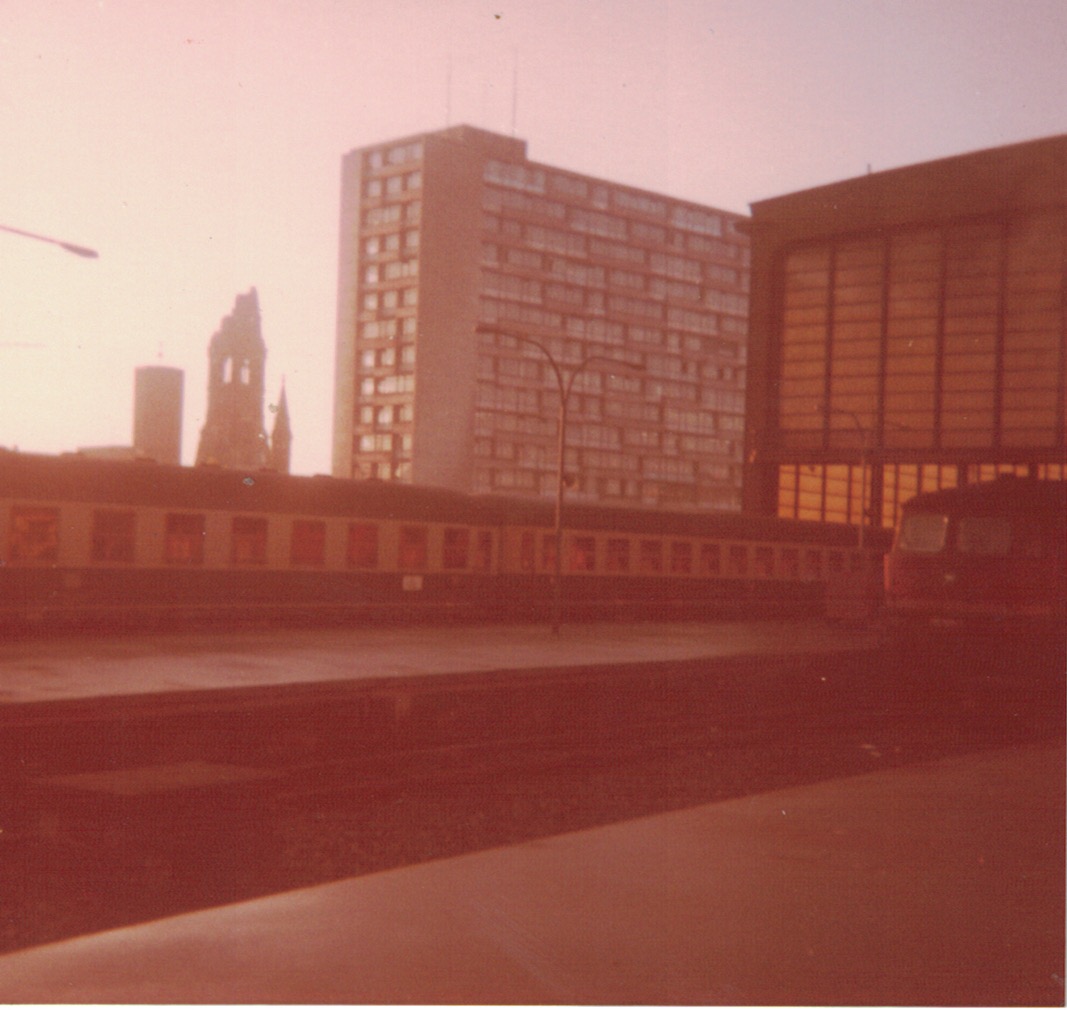
Also because I think the early clubbers also listened to bands like Talking Heads, Joy Division, Bauhaus, krautrock. Or am I wrong?
I cannot really speak for early clubbers in general. Early clubbers in Berlin was a conglomerate of persons of different age, different musical background and — different cities with different access to music on radio or records. I think that sooner or later everybody discovered the bands you mention here as they are roots for the electronic movement. But for sure New Orders´ Blue Monday was for one of the songs blewing everybody away at same time. “Music professors” researching the roots of course should have discovered Joy Division, Talking Heads, B52´s to name only a few. If they then really listened to these bands too and more often: who knows?
But I listened to: yes!: Joy Divison, Talking Heads, Bauhaus, Sex Pistols, The Cure, Nina Hagen Band, Ideal, Sisters Of Mercy, Killing Joke, Devo, Spliff, Stranglers, The Clash, The Ruts and a lot of the local Berlin bands that days not existing any more…
And if at this moment you could go back, what would be the memory you would like to experience a second time?
First I wanted to say: that I don’t want to experience anything a second time. The moments were right at a particular time. But thinking longer: I wouldn’t mind experiencing my times in New York City again, at New Music Seminar 1991, getting to know the NY music scene people, my friend (since then) Abe Duque, going to Limelight, seeing how nightlife works with red carpets and guestlist rows. And one evening I bumped into Jeff Mills who was living there at that time too. We knew each other from before. We went independently to the same cinema at the same time – in a city of 8 million people! He went to see “Brazil” (the director’s cut, I think), I went to see “Singles”. But in the end, memories are good as memories.
Certainly unforgettable moments. But, your great experience in the field, in your opinion what does the success of an artist depend on?
Talent, discipline, be on a mission for music, believe and trust in yourself, be courageous to look and work ahead which means not just fulfilling what you think people expect from you, listen to your good friends and consultants also if they criticise and don’t take it personally, just analyse for yourself and make decisions. Give always the best possible. If you know you did that and couldn’t do it better at that moment, it´ll work out! And do your f*** socials.
I’d like to ask you another somewhat delicate question. In recent times there has been a lot of talk about gender inequalities and how much these still affect today especially in the world of work. There are many excellent DJs, producers, managers and industry professionals around the world.But from the inside, what can you tell us about it? How present is this difference and how much is it noticeable?
Gender inequality is a very complex subject to talk about. It has to be analysed by looking into history, culture and religion, and in each country because the developments in rights for women for example are different everywhere. In Germany, the husband had to permit his wife to work until the 70ies! Equalization takes very slow steps and had and has to be fought very hard for. Often one step was made for the better and shortly after two steps were made back. That happens now again a lot. So it’s good that the awareness is here more than ever for all genders.
In the electronic scene I know everybody was welcome and accepted. We just always lived it all together.
But now times are even more difficult as we have too many ultra-conservative forces getting stronger again, unexplainable movements against democracy, dictatorships and a partial regression to the middle again and a war in Europe in 2022… Just keep our fingers crossed that the initiatives now will help to establish a stable ground base for real equality legally and in people’s minds to be built on without stepping back anymore.
We have reached the end of our chat, and to say goodbye I would ask you: Carola Stoiber, if you had to choose your three albums (not necessarily electronic music) that we say ‘they changed your life’ what would the ranking be?
The Cure – Boys Don’t Cry
Helmet – Strap It On
X-102 – The Rings Of Saturn
I need to add a life changing fourth album: Kyuss – Blues For The Red Sun
Boys Don’t Cry is the soundtrack of my life too. Now, as I usually do, I like to leave a blank space where our guests can freely express themselves, and share their thoughts, and their requests, if they feel like it.
I request: freedom, freedom of speech, to express yourself in any way desired, that people respect each other and that everybody does something to make the world a little better, even small things. Be responsible for yourself and what you do. Maybe that sounds a little pathetic but I grew up with and like this, and I was able to live my life so far as I wanted. Also because the electronic movement happened. Peace!

I agree with your thoughts and I thank you. Thanks Carola, it was really nice and constructive talking with you.
Thanks to you Nicola. Ciao.
Cover: Carola Stoiber by Aleander Hüfner, 1985
Some photos courtesy of Carola Stoiber, private archive.
